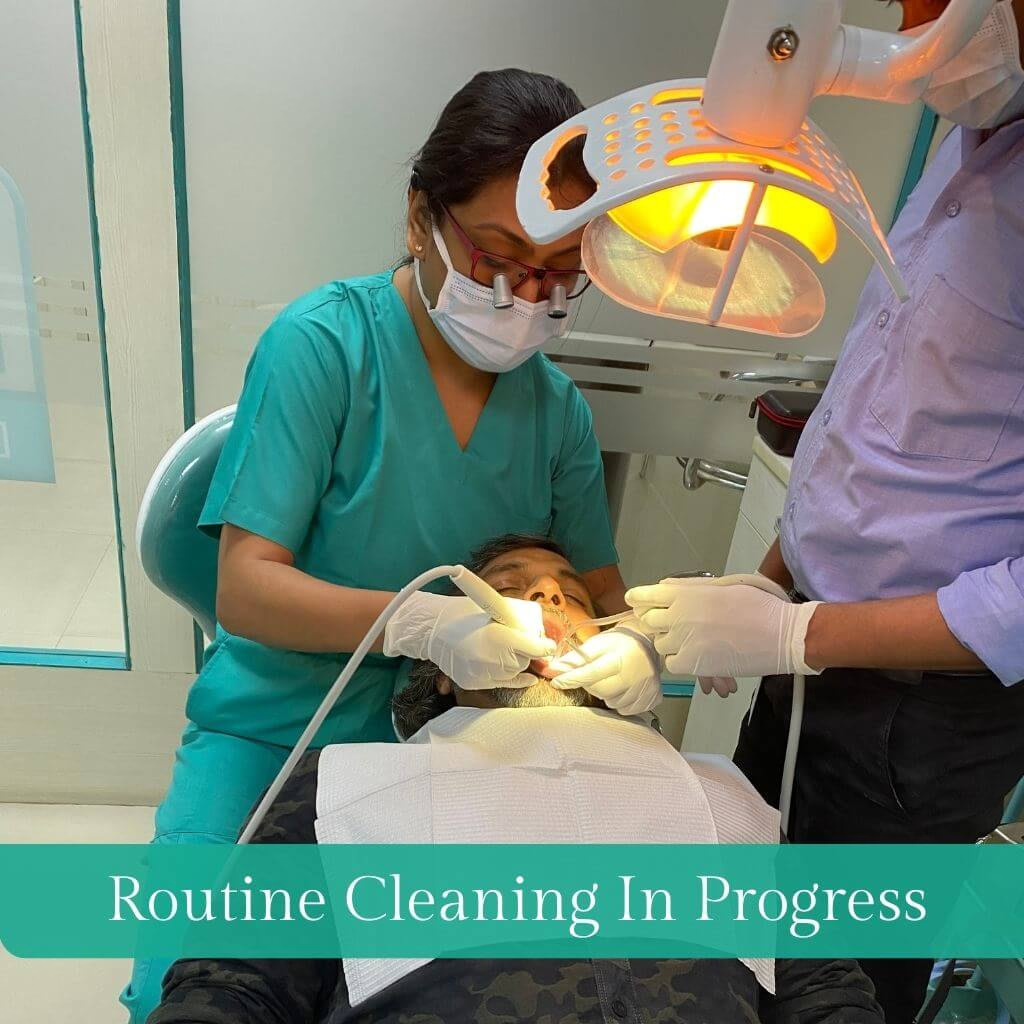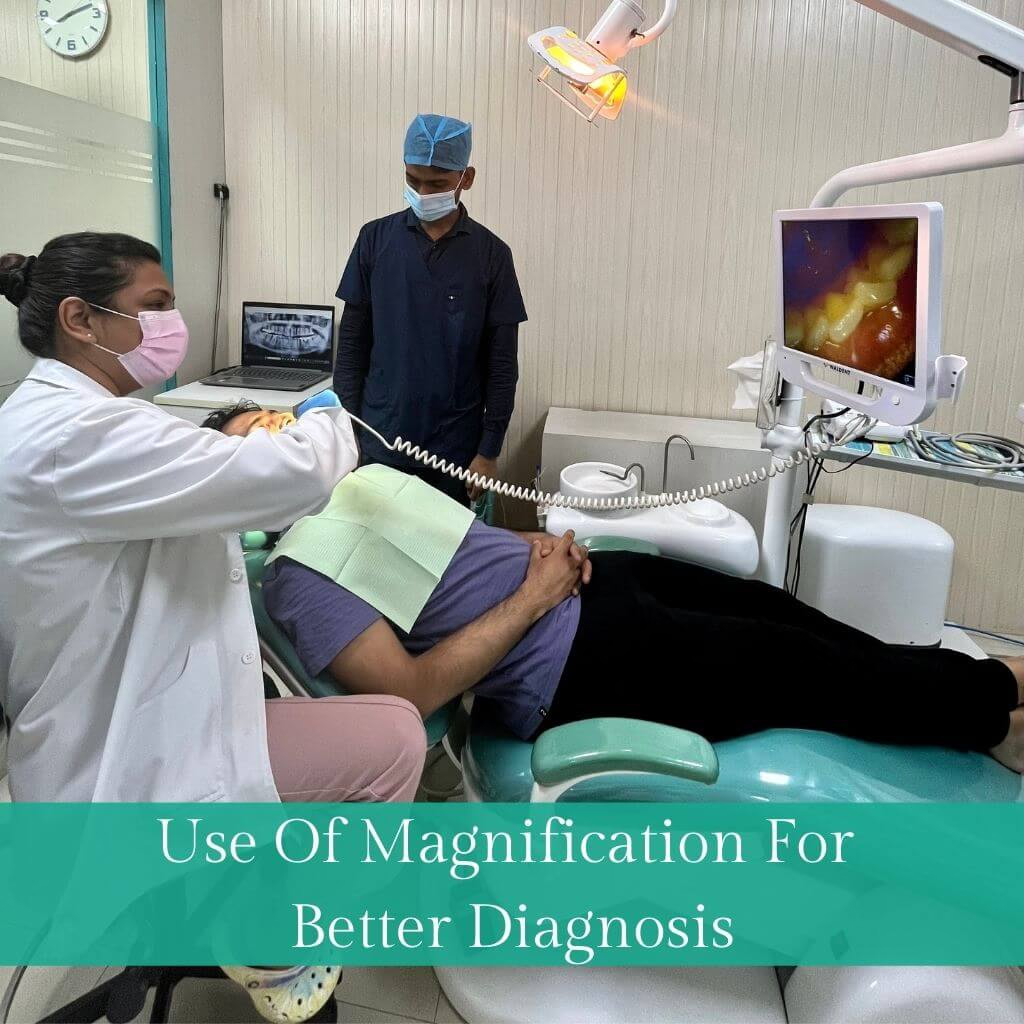5 Tips To Prevent Dental Problems And Have A Sparkling Smile!
Radiant smiles are not only pleasant to look at but also an affirmative sign of good health. Ensuring optimal oral health is essential for a confident smile and overall well-being. While we all wish for pearly whites, gum and tooth problems can be a nightmare to have. Dental problems can be painful, costly to treat, and sometimes even affect your overall health. Worry not; our specialists at Hope Dental & Esthetic Clinic, Noida, have curated this blog to answer all your worries about maintaining your oral health in an immaculate condition!
Fortunately, there are simple yet effective steps you can take to prevent dental problems and keep your teeth and gums in excellent condition. Here are five essential tips to help you maintain a healthy smile!
Key Takeaways
- Brush your teeth twice a day for two minutes with fluoride containing toothpaste.
- Avoid Tobacco and excessive alcohol consumption
- Limit consumption of sugary and acidic foods, choose healthier snacks
- Regular flossing is a vital aspect of maintaining good oral hygiene. Brushing and flossing are not interchangeable- BOTH are equally important.
- Incorporate fluoride products into your oral health routine and consult a dentist for specific recommendations.
Brush and Floss Regularly
The foundation of good oral hygiene starts with regular brushing and flossing. Brush your teeth at least twice a day, preferably in the morning and before bedtime. Use a toothbrush with soft bristles and some fluoride toothpaste to gently clean all your tooth surfaces. Make sure to brush your tongue, as it can harbour bacteria that cause bad breath.
Flossing is an integral component of maintaining oral hygiene as it helps remove plaque and tiny food particles from the spaces/gaps between your teeth and along the gumline, areas that your toothbrush may not reach effectively. Make it a habit to floss at least once a day, ideally before bedtime. Effective brushing and flossing play a vital role in preventing the accumulation of harmful bacteria and lowering the chances of developing cavities and gum disease.
Avoid Tobacco and Alcohol
Alcohol and Tobacco are two substances that can have detrimental effects on your oral health. Smoking or using tobacco products can result in serious gum disease, tooth decay, and even oral cancer. If you use tobacco products, consider seeking help to quit and improve both your oral and overall health. Alcohol and tobacco use can lead to dry mouth by reducing the production of saliva. Saliva is essential for neutralizing acids in the mouth and preventing tooth decay.
Excessive alcohol consumption can also elevate the risk of oral cancer. Moderation is essential in alcohol consumption, and it's vital to maintain proper hydration by drinking water alongside alcoholic beverages.
Limit Sugary and Acidic Foods
Your dietary choices have a substantial impact on your oral health. Foods high in sugar and acidity can erode tooth enamel, increasing cavity risk. Limit consumption of sugary snacks, soda, and acidic fruits like citrus. When you indulge in these treats, try to do so during mealtimes rather than as between-meal snacks and brush your teeth or rinse your mouth with water afterwards to help minimize the damage.
Maintaining a balanced diet that incorporates a diverse range of fruits, vegetables, lean proteins, and dairy products is essential for overall health, including oral health. Dairy products like cheese and yoghurt are particularly beneficial as they contain calcium and phosphates that help strengthen tooth enamel.
Use Fluoride Products
Incorporate fluoride into your daily oral health routine by using the toothpaste and treatments recommended by your dentist. Fluoride is a natural mineral that fortifies tooth enamel, aiding in the prevention of cavities. You can obtain fluoride by drinking fluoridated water, brushing with fluoride toothpaste, and using other fluoride products recommended by your dentist, such as treatments and rinses.
Children can also benefit from fluoride products. Ensure your children receive professional fluoride treatments and use toothpaste with the correct fluoride level for their age. Consult your dentist for a recommendation.
In addition to using fluoride, it's essential to brush and floss your teeth twice daily to support the health of your teeth and gums, preventing the buildup of plaque and bacteria. Use mouthwashes that contain fluoride to help control bacteria.
Regular Dental Checkups
Regular dental check-ups are a vital element in maintaining optimal oral health. Even if you diligently follow all the above tips, there may still be hidden dental issues that only a professional can detect. Dentists can identify and treat problems early, preventing them from becoming more severe and costly to address.
Ensure that you schedule routine dental checkups and cleanings with your dentist, aiming for at least one visit every six months. During these appointments, your dentist will assess your oral health, perform cleanings, and offer guidance on any specific issues you may be facing. It's a great opportunity to discuss any concerns or questions you have about your oral care routine.
FAQ’s
Conclusion
At Hope Dental & Esthetic Clinic, Noida, we highly recommend taking a few simple steps to prevent dental problems now. It's crucial to keep in mind that taking action now can prevent significant problems and expenses in the future. We understand that you may feel like it's too much effort to brush, floss, and avoid certain foods, but think of it this way: you're investing in a healthy, beautiful smile for years to come. Always remember – dentistry is not expensive; neglect is!
Don't let your dental health be an afterthought–start caring for it now!




